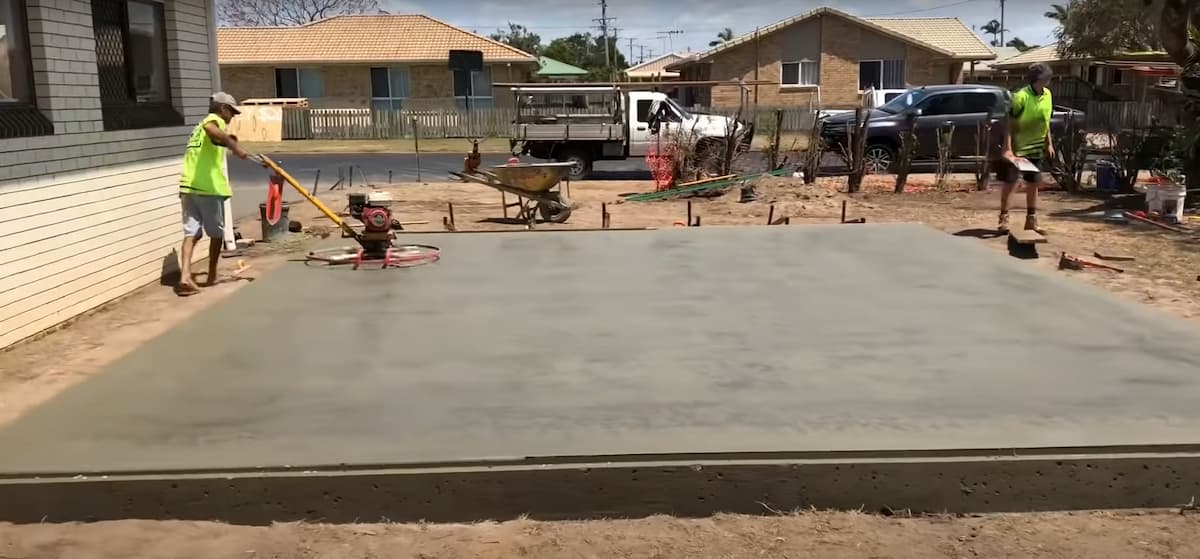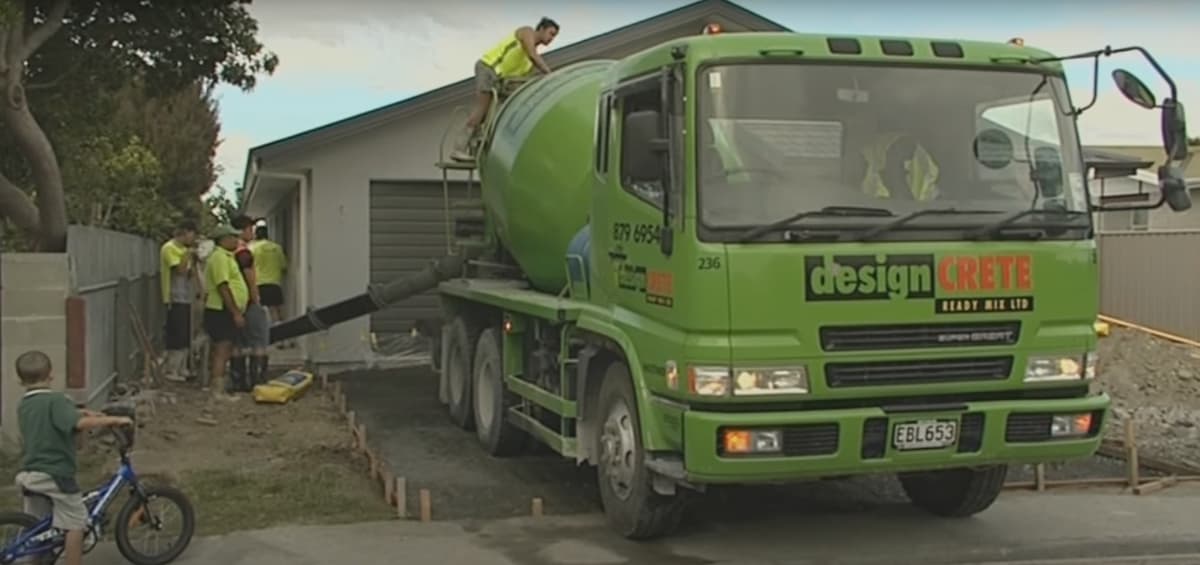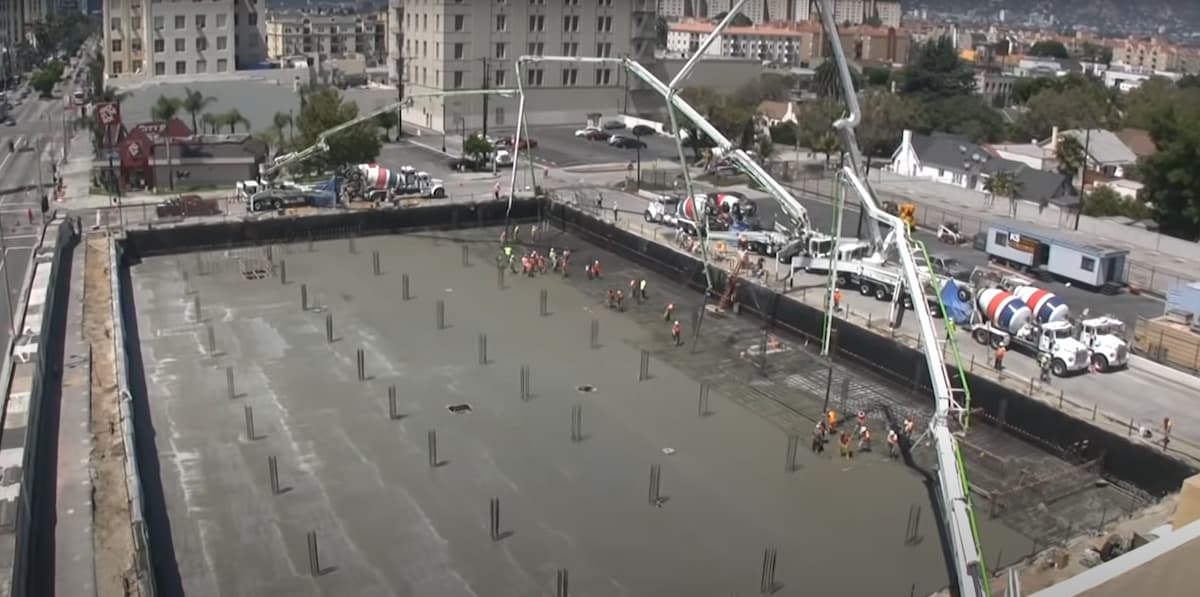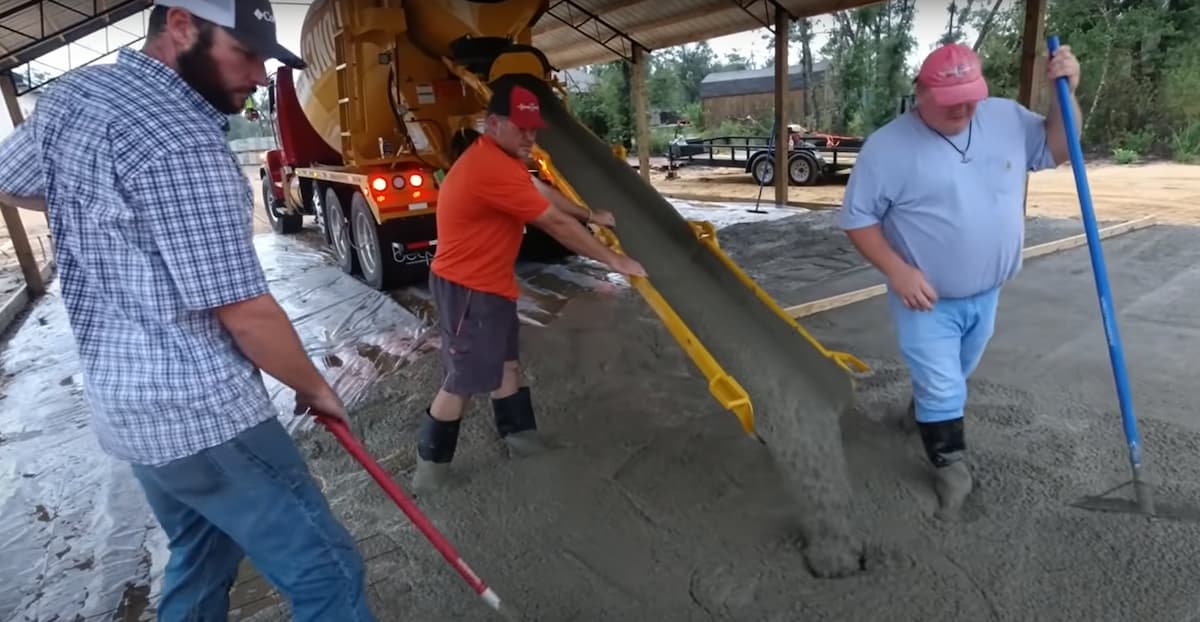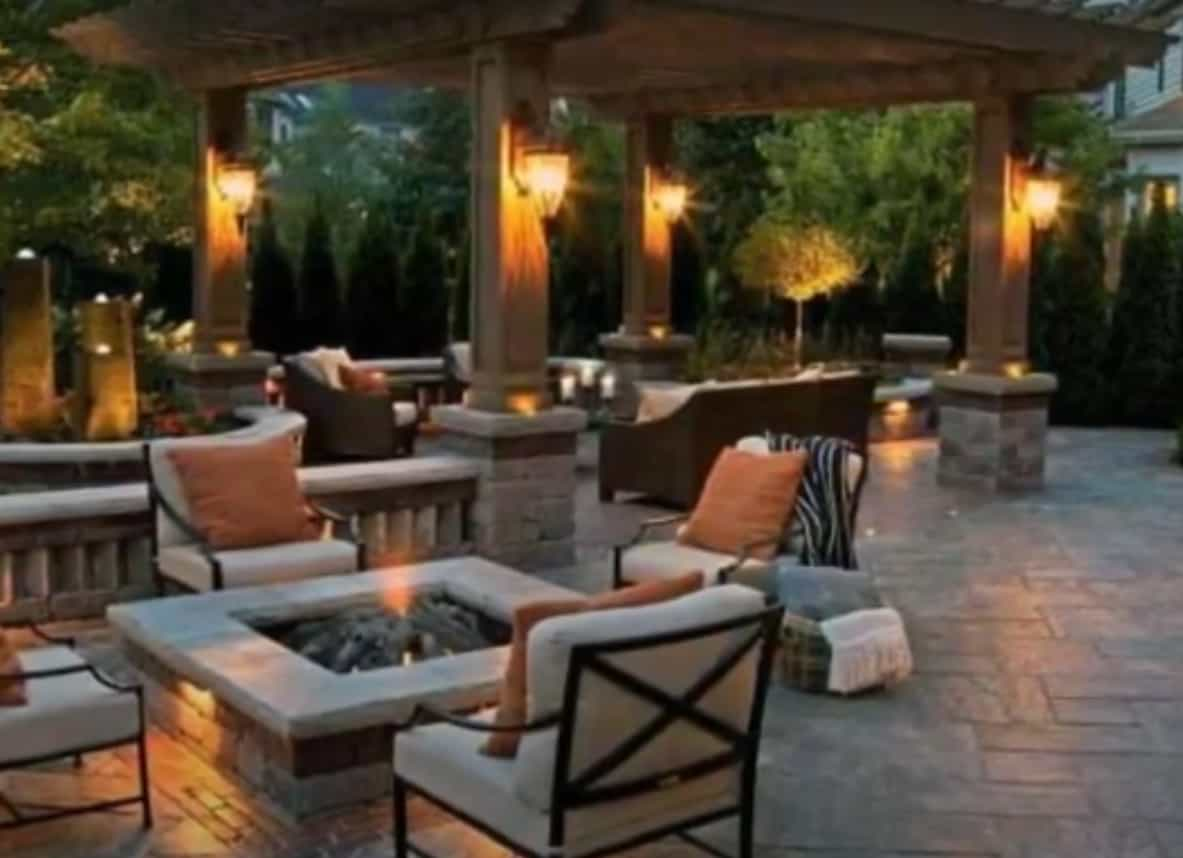
What is stamped concrete? | Stamped concrete costs in Australia | Stamped concrete driveway cost | Stamped concrete pool area cost | Stamped concrete price for installation | Stamped concrete vs pressed concrete | Stamped concrete vs pattern concrete | Popular stamped concrete designs
Installing a new driveway, pool deck, walkway, or patio? Most Australians will consider many options, including stamped concrete. Apart from the cost aspect, there are other weighty considerations like design patterns and lifespan.
Stamped concrete has the potential to increase the value of your home. Essentially, it tries to mimic other materials such as stone. Due to its concrete nature, stamped concrete guarantees longevity and durability.
In this article, we concentrate our efforts on stamped concrete. We whittle down the cost element for stamped concrete. Are they worthy of the investment?
What is Stamped Concrete?
It is a type of concrete intended to have aesthetically pleasing designs. The design is achieved using various colours, textures, and patterns, making it take after some other material like tiles or bricks. The upside to using stamped concrete is the long lifespan and low maintenance of the concrete.
To achieve the design patterns envisioned, a stamping process is used. A rubber stamp is widely utilized on wet cement to imprint the desired pattern. The stamp is made from a mould to ensure your concrete perfectly resembles the texture and pattern of materials like wood, bricks, and cobblestone.
Creating stamped concrete is not complicated. Initially, cement is poured into your work area to at least 4 inches. You are then required to add the primary colour, which you then spread over the wet cement.
A releasing agent is then applied to ensure your rubber stamp or texturizing mat does not stick to the wet cement. While the cement is still wet, lay the texturizing mat. You can cover the span of your working area bit by bit, ensuring to maintain the patterns.
The hard part is now over; let the cement rest for at least 1 day, then pressure wash it. Washing guarantees that the release agent is washed off. Finally, a sealing agent can be added. After completing this process, the concrete can be used within 48 hours. However, for driveways, homeowners have to wait for a week before using them.
Stamped Concrete Costs in Australia
The price of stamped concrete primarily depends on several factors like:
- Size
- Choice of concrete patterns
- Project location condition
- The thickness of the concrete
The upfront cost of stamped concrete is considered high by many. However, looking at it from the perspective of durability and longevity, stamped concrete sure compares favourably to other options.
The price for simple concrete patterns, especially for driveways, will range between $88/m2 and $130/m2. Across Australia, prices average around $120/m2, inclusive of tax.
Some customers require highly detailed concrete finishes with colourful patterns. In such a case, you have to budget upwards of $200/m2.
So, let’s do some simple math to find the price of basic and complex design options for a driveway spanning 50m2.
- A simple design and finish for the stamped concrete the cost estimate is around $6000(50m2* $120). This is mostly adopted for a walkway.
- For complex patterns with exceptional surface, feel, and colours, the cost estimate ranges from $10,000 to $15,000.
With these base estimates, you can now approach contractors with a reference budget.
Stamped Concrete Driveway Cost
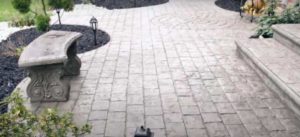
Using stamped concrete is a sustainable option for authentic materials. Stamped concrete driveways involve design patterns that mimic pavers, stone, and brick.
The biggest determiner of cost is the size of the driveway. Price will, of course, vary based on location, contractor, and material used.
In general, Australians should expect to pay between $65/m2 to $150/m2 for a stamped concrete driveway. This price point competes favourably with exposed aggregate which is another popular option. However, it is significantly higher in comparison to plain and coloured concrete.
Here is a guide to the cost depending on the type and size of the driveway.
- A single driveway, 18m2 in size, cost ranges between $1,620 to $2,160
- A double driveway, 36m2 in size, cost ranges between $3,240 to $4,320
- Triple driveway, 54m2 in size, cost ranges between $4,860 to $6,480
Style and textures also affect the cost of your driveway. Some of the more popular textures you can consider for your home include:
- European fan
- sanded slate texture
- Rough stone texture
- Driveway borders
- London cobble
Stamped Concrete Pool Area Cost
Stamped concrete around the pool is preferred due to its versatility. Additionally, you can easily mimic an elaborate design that makes your pool deck attractive.
Additional advantages of stamped concrete include the ease of maintenance, resistance to fading and protection against the chemicals in the pool. The following factors will influence the project cost:
- Materials
- Design complexity
- size of the pool deck
The average size of pool decks ranges from 65m2- 150m2. Depending on your concreter and the level of complexity, prices typically range from $30-$150 per metre square.
Fun fact: The average Australian will spend 90% of their time on pool patios compared to the pool. Therefore, ensure the pool patio is attractive and skid resistant.
Stamped Concrete Price for Installation
Installation prices form a significant portion of the overall project costs. Typically, for stamped concrete projects, concreters do various activities, including
- Prepping the site,
- mixing and laying the concrete,
- paving
- Applying the finish.
Expect labour charges to be hourly. However, insist on a fixed price estimate before commencing the job. The hourly charges may start at around $60.
Other concreters charge a job as a whole, inclusive of all factors, including the labour. For a stamped concrete driveway, expect to pay from $65 m2. These charges are similar to exposed aggregate.
Tip: Ask a variety of licenced concreters for quotes. Check for references before choosing the best three. Finally, negotiate the prices.
Stamped Concrete vs Pressed Concrete
Pattern and stamped concrete are methods used to develop natural-like patterns. Some of the commonly used patterns include stone, wood and brick.
This type of concrete design seamlessly provides finishes and texture for areas like the patio and swimming pool decks. The finish greatly enhances the curb appeal. As a result, the value of your home dramatically increases.
Stamped Concrete vs Pattern Concrete
Stamped and pattern concrete is more or less the same. The concrete surface is designed with various patterns and colour options. The results are well crafted concrete floors with great performance.
Apart from the finish and look, pattern concrete provides extra traction for you around your decks and patios. The number of design patterns available are many. Homeowners can choose the designs, colours, and dimension of pattern concrete.
Popular Stamped Concrete Designs
Stamped concrete is a perfect choice to give your home that high-end feel. Some of the most popular design is:
- Ashlar slate
- Sized cobblestones
- The wood effect
- The brick effect
- Slate and brick combination
- Stamped and shaped patio
- The pebbles stones look and feel


